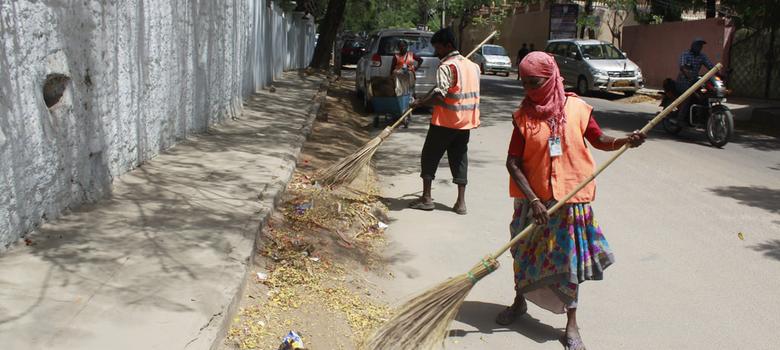One of the first observations that can be made of India is how populated it is. 1.25 billion people live here yet the country is relatively small geographically – the USA is more than three times larger in land mass but four times smaller in population. It is a busy place, and having travelled the country fairly broadly now I have observed a lot of people doing jobs that aren’t really doing much, it would seem.
For example, there is security staff at the doors of almost every building here. I am not suggesting that security staff are not necessary (although I often think this is the case, personally), but more often than not I find that: a) the buildings are not exactly worth bombing seeing as there often isn’t much to bomb inside, and b) the staff aren’t exactly thorough in their searches. They tap around your pockets a bit but don’t seem to pay much attention to what’s there – the other day I got into a shopping mall, passing through a metal detector, with a can of coke in my pocket! Other examples include the staff sitting at the entrance to toilets, not really doing much other than welcoming you in, and the ‘sweepers’ whose sole role it is to sweep dust off the streets.
Having raised my observations of pointless jobs in India to professor Vijay Kunjeer though, I was informed about the “Mahatma Gandhi National Rural Employment Guarantee Act” (MGNREGA) and my skepticism made sense. The 2005 social security act provides at least 100 days of waged employment in the financial year to every household whose adult members volunteer to do unskilled manual work. Ten years on the law still exists and two years ago it was described by the World Bank as “a stellar example of rural development”. Is really a good thing for India’s economy though?
On the one hand it can be considered a success for upping employment figures. After all, for an economy to be strong people must be working and getting paid. Also it might be praised for at least ensuring legal work rather than resorting citizens into crime. On the other hand however, it might be criticised for failing to promote skilled work. By doing nothing and being paid for it, it can be argued that the country is wasting money. The program consciously rejects technology and machinery designed to get jobs done, aware that it would replace human labour. As India seeks to grow though, perhaps it is failing to maximise its productivity potential whilst other countries invest in resources that work more efficiently. You only have to look as far as all of the half-built houses here to wonder if some machines might be necessary to build a roof…
I am undecided myself as the whether or not the scheme is good or not. Having asked professor Kunjeer what his opinion on it was, he believes that it is a solid short-term initiative to boost employment but in the long-term it is not a practical way to achieve economic growth. Ten years of unskilled work is far from progressive, but the Indian government is understandably struggling to come up with an alternative. They are dealing with a lot of people!
